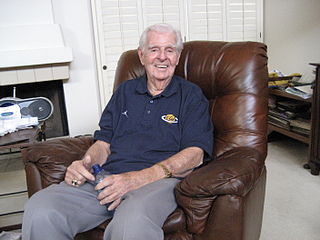A Quote by Charles Duhigg
The Golden Rule of Habit Change: You can't extinguish a bad habit, you can only change it.
Quote Topics
Related Quotes
Sometimes, counter-intuitively, it's easier to make a major change than a minor change. When a habit is changing very gradually, we may lose interest, give way under stress, or dismiss the change as insignificant. There's an excitement and an energy that comes from a big transformation, and that helps to create a habit.
A fixed habit is supported by old, well-worn pathways in the brain. When you make conscious choices to change a habit, you create new pathways. At the same time, you strengthen the decision-making function of the cerebral cortex while diminishing the grip of the lower, instinctual brain. So without judging your habit, whether it feels like a good one or a bad one, take time to break the routine, automatic response that habit imposes.
What we know from lab studies is that it's never too late to break a habit. Habits are malleable throughout your entire life. But we also know that the best way to change a habit is to understand its structure - that once you tell people about the cue and the reward and you force them to recognize what those factors are in a behavior, it becomes much, much easier to change.
It is a law of nature we overlook, that intellectual versatility is the compensation for change, danger, and trouble. An animal perfectly in harmony with its environment is a perfect mechanism. Nature never appeals to intelligence until habit and instinct are useless. There is no intelligence where there is no change and no need of change. Only those animals partake of intelligence that have a huge variety of needs and dangers.
I have full faith in people. I think that we have the ability to change. We're habitual creatures. Once we figure out that bad habit and identify it, whether it's behavioral or whatever it may be, we change our habits. Obviously, I'm simplifying it and making it sound very easy to do, and we all know it's very difficult, but it's doable.































